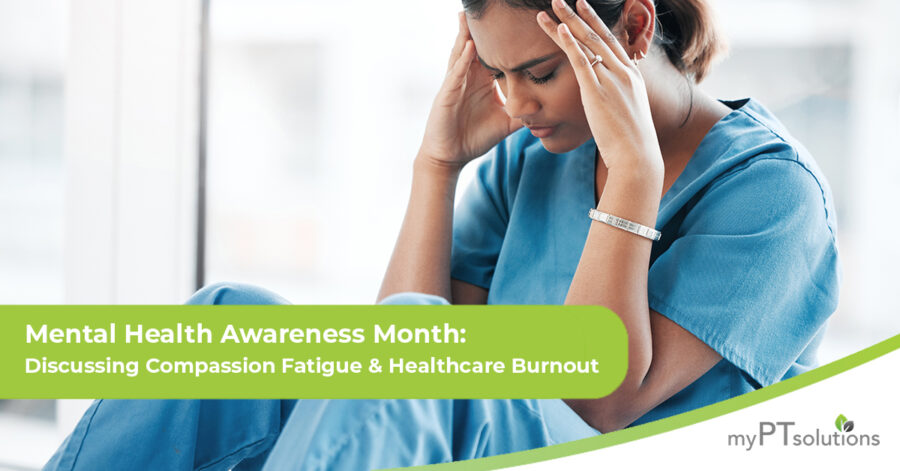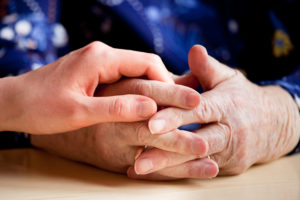May is mental health awareness month. So it is an excellent time to discuss compassion fatigue and healthcare burnout. Compassion fatigue and healthcare burnout are considerable hazards for those in the caring business. It is a state of physical and emotional exhaustion and a decreased ability to empathize. Not only can this state of physical and emotional exhaustion affect your physical and mental health, but it can also have legal implications when providing therapeutic services to clients.
Compassion Fatigue vs. Burnout
When you examine compassion fatigue, you will find it is not the same as burnout. There are four significant differences between the two:
- Compassion fatigue results from exposure to traumatic material, whereas work-related attributes such as job, co-workers, supervisors, and poor work culture often result in burnout.
- A rapid onset of compassion fatigue follows a first experience of absorbing traumatic material. Burnout occurs slowly as work-related stress accumulates, such as paperwork, lack of resources and extended shifts.
- Compassion fatigue is the impact of helping others. Burnout describes the effects of a stressful workplace.
- Between the two, compassion fatigue has a faster recovery time than burnout if addressed early.
Compassion Fatigue Tips
Compassion fatigue is a typical result of caregiving for people for whom we feel compassion. Compassion is a strong reason many people enter healthcare, but it can take a toll. With compassion fatigue, you might excessively blame others or isolate yourself from them. You might be preoccupied and have difficulty concentrating. You will likely feel mentally and physically tired. Here are some suggestions for combating the effects of compassion fatigue:
- Be kind to yourself
- Take plenty of breaks and personal time
- Understand your reactions and accept where you are in your journey
- Discuss your thoughts with people who can validate you and listen to those with similar experiences
- Set boundaries in your caregiving relationships
- Express your needs loudly
Burnout Help
The full workdays, demanding pace, time pressures and emotional intensity of the healthcare industry puts healthcare professionals at high risk for burnout. With burnout, you find decreased job satisfaction, absenteeism, turnover in personnel, cynicism, anxiety, depression, and isolation. To combat the effects of burnout, consider these tips:
- Maintain a healthy work/life balance
- Develop personal and professional support systems
- Create personal coping strategies
- Get adequate exercise and rest
- Take time away for vacations or long weekends
You must take steps to reduce compassion fatigue and burnout. If left untreated, compassion fatigue and burnout symptoms can lead to mental health illnesses like depression, anxiety, obsessive-compulsive disorders and substance use disorders. As a healthcare professional, you must tend to your needs before you can care for others. Take care of your emotional and physical well-being and needs while you are involved in providing care for others.
We are here to help you advance your career through top physical therapy jobs! It is an excellent time to check out the current job openings at myPTsolutions.




